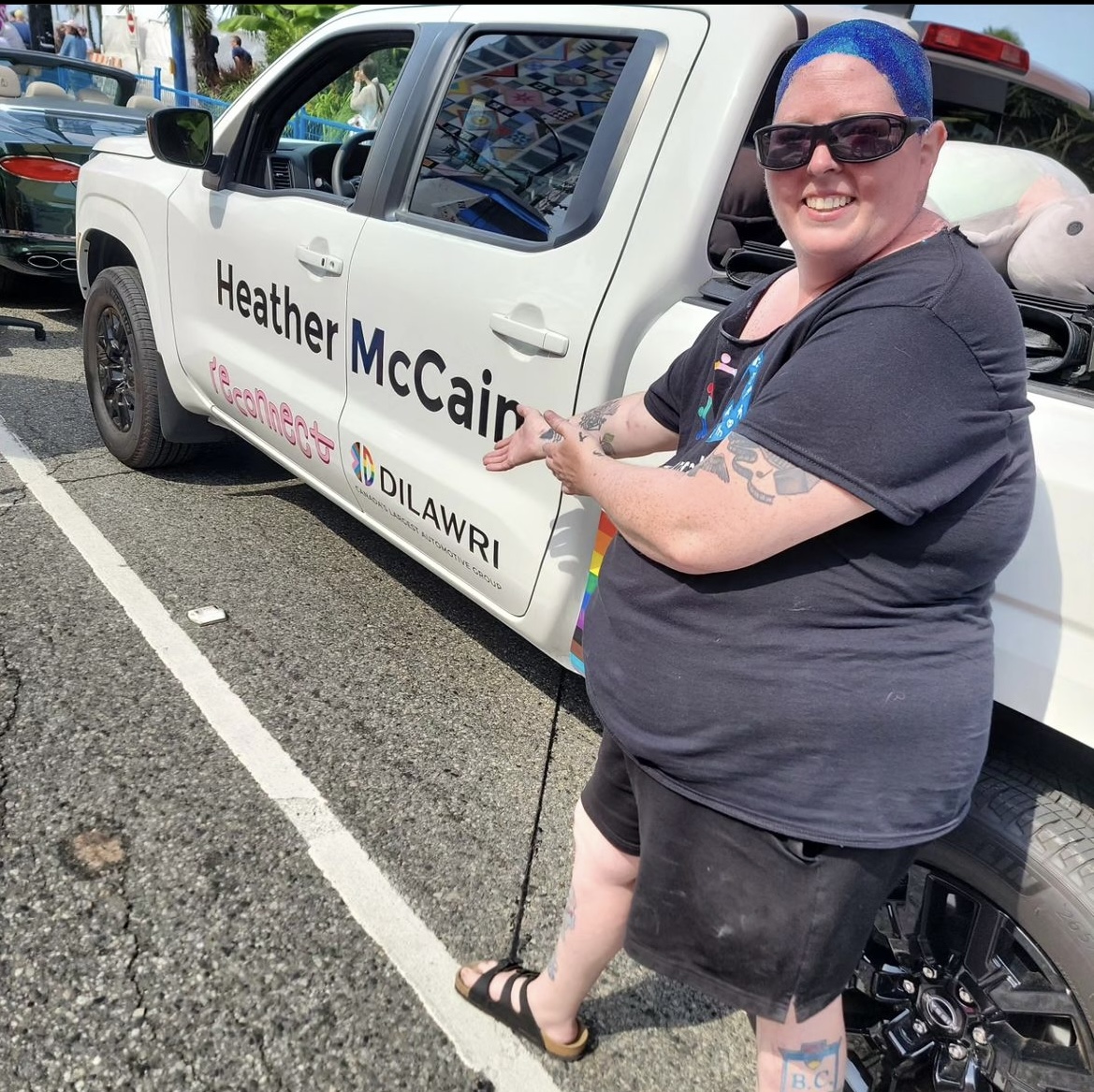Heather McCain delivered an Accessibility at Pride workshop to Fierté Canada Pride. Fierté Canada Pride (FCP) is the national association of Canadian Pride organisations. They are a membership-based organisation, governed by a volunteer Board of Directors and Leadership Councils. The main goal of FCP is to promote 2SLGBTQIA+ Prides on a national level.
The workshop Heather facilitated was a combination of Disability Awareness workshop with information about Crip and Community Care. Heather also talked about LET’S’ work with Vancouver Pride Society and the need for increased disability awareness and accessibility at Pride.
An example Heather gave regarding the the importance of representation:
“I’ve been working with Vancouver Pride Society since 2019. I did accessibility audits of all their events. In 2023, based on my recommendations, they changed the festival location and the route of the parade. As if that wasn’t wonderful enough, I was asked to be Grand Marshal. I am still buzzing about Pride. I heard from so many people, visitors, vendors, and volunteers, how they were able to participate in Pride for the first time ever because of the changes. The following is an example of how the work we do now has ripple effects in the future.”

Heather shared this message they received after a news appearance talking about the 2023 Vancouver Pride route:
“I thought to send you an email after recognizing your face and name on a news broadcast last week about the new route of the Vancouver Pride parade. I want to express how significant and affirming it was for me to witness a person queer, fat, disabled person, someone who looks like me and who’s likely to have parallel experiences to me being appointed as grand marshal of the parade and using that position to make long needed changes to make Pride more accessible. I’m sure you are aware of that significance, but I wanted to speak to the personal impact of that representation for me. It’s no small thing to see positive changes made in this hostile world, however long overdue or seemingly of basic consideration.
I also appreciated the comments made by the other person shown, (Harmony Bongat), and their comments around the inclusion of the BIPOC queer experience and acknowledgment that the cis white gay male experience has been centred in years past. I avoided the parade for years as I felt it wasn’t too really ‘for me’.
Thank you for your role in this. I wasn’t able to travel to Pride this year, but your actions and the actions of your colleagues made the event feel more accessible to someone like myself. Maybe next year I will make the trip.
The Pride committee in my area has had much inner conflict and foibles of making unthoughtful choices around accessibility and safety of all queer folks. This inspires me to maybe join the committee next year and be a part of those changes. This year I am planning a Queer Prom event as a part of their location’s Pride.”
(The other person interviewed, whose name they couldn’t recall, is LET’S’ amazing educator Harmony Bongat.)
As Heather mentioned in their workshop, disabled people have to fight for our existence. We have to advocate for our space, protect one another from being institutionalized, create support systems, care networks, and communication webs. As Audre Lorde said in her poem A Litany for Survival “we were never meant to survive”. We live with that reality and we fight for liberation to ensure that others do not have to live with the weight of that on their shoulders and hearts.

Heather also shared some critical reflections around their involvement in Vancouver Pride last year:
“While it was great to see Vancouver Pride Society take such a huge step forward in accessibility, there was a lack of information and media about the importance of the change. Many who attended had no idea why the route was altered. LET’S had a big sign next to our booth outlining the advantages of the change and we had a lot of people approach us to thank us for communicating the reasons and need for the change.
It is vital that accessibility improvements and successes are communicated to the broader community and celebrated by the organization making the change. Lack of information is an accessibility issue in itself and proves how much work is still necessary.”
Heather also spoke about how they were the first fat/disabled/neurodivergent Grand Marshal at Vancouver Pride and the least publicized. The only press they received was at the raising of the Pride flag at City Hall. This was a disappointment for Heather both personally and to some people in the community. It demonstrates that even when successes occur, we are still a far way off from being where we need to be. However, that doesn’t stop us from celebrating every step forward and utilizing it to push for more positive change.
